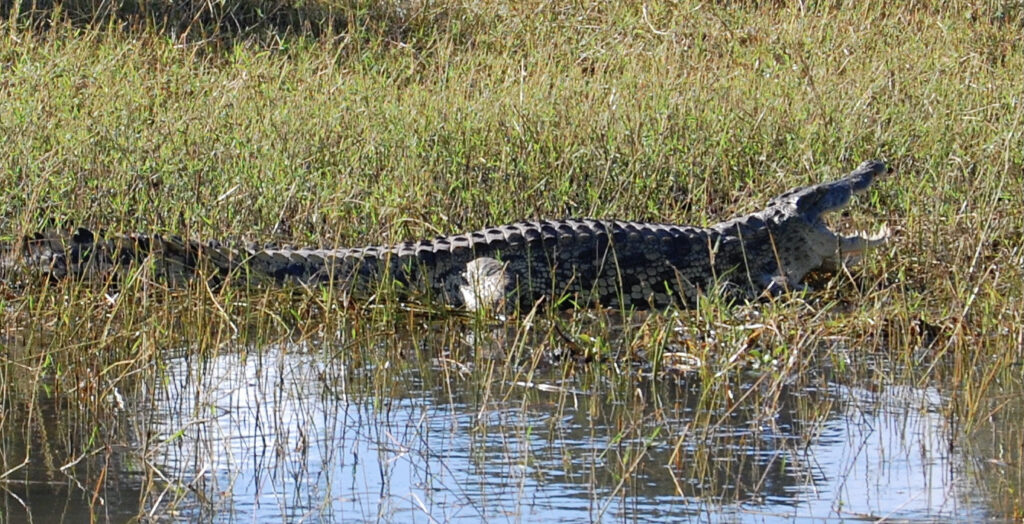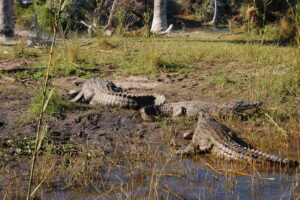
Liwonde Game Park, Malawi … “You are now on the Shire River,” the guide began his warning. “You must remain seated in the boat at all times, and you must not put your hands in the water. Do not stand up because if you fall in the water, I cannot come in to rescue you. This river is full of very large crocodiles, and they will be delighted to discover you have come their way for lunch.”
With that sober thought, he turned, pulled the cord on the engine, and our river adventure along the very same route followed by the English explorer David Livingstone was underway.
Not far from our river edge camp the sounds of a hippo pod warned us there were more dangers along this waterway than just those of the crocodile.

Speak of the crocodile, it wasn’t long before we saw several of them lounging sleepily on a sand spit just slightly offshore from the west bank of the Shire. Some of us looked around the boat a bit concerned that everyone had their hands well inside the boat (we needn’t have worried). Everyone inched a bit nearer the center of the boat as our guide cut the engine and glided to within about 6 or 7 feet of the sleeping (we hoped) crocks.
The Nile crocodile, the ones we were staring at from the all too small boat, were from the species that are the largest crocks in the world. While the females are smaller than the males no one on our boat was interested in reaching down to get one to indicate whether it was male or female. Even though they appeared to be sleeping their mouths were opened enough (the guide said this was for temperature control), for us to see the long powerful jaws and rows of jagged teeth.
We learned there are about 250 to 500,000 of them today. They can live to the age of 80, weigh as much as 225 to 500 KG (500 to 1,000 lbs), and travel at a top speed of 35 KM/hr. That is more than 20 miles per hour and compares to the fastest speed human beings have reached is slightly faster than that of a crocodile at a little over 25 miles per hour.
However, it isn’t likely most people would get a chance to outrun a hungry crock. With that information in mind, the guide pulled the cord, the engine sprang to life, and we moved on down the river toward the sounds of another hippo pod, the most dangerous animal on the African continent.
